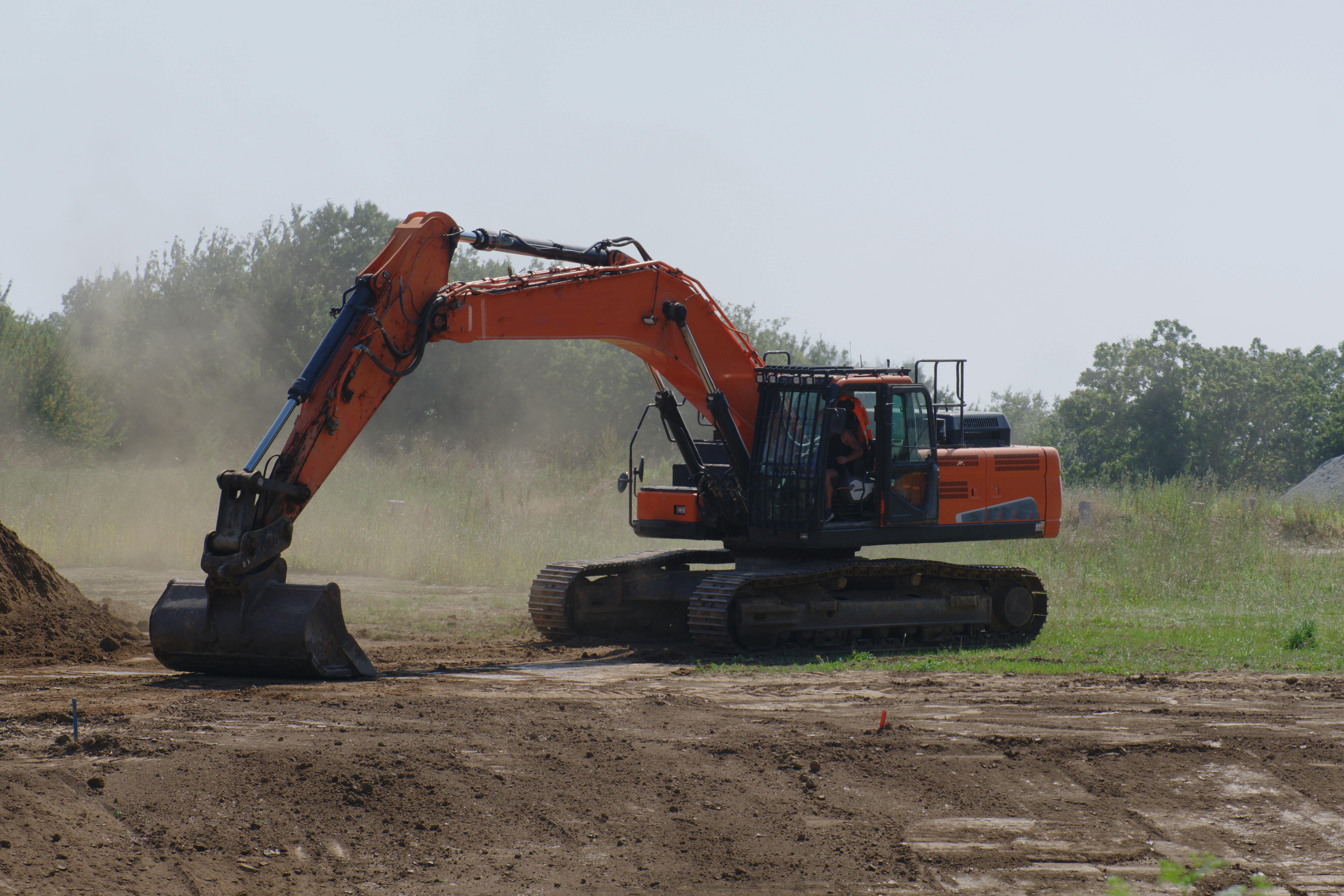Safety Protocols for Heavy Equipment on Music Festival Sites.

Any sizable music festival site that is built on an empty field can resemble a busy construction site during the build-up phase. This heavy equipment can present numerous dangers to anyone on site at the same time and therefore requires meticulous planning by organisers to ensure the relevant safety protocols are always followed.
The preparation of festival sites may require the use of excavators, bulldozers and dump trucks. When construction of stages and other temporary structures commences equipment like cranes, forklifts and scissor lifts are often used. All this equipment can be operated by a wide variety of different contractors, so it is essential that activities are carefully planned and monitored to prevent injury to anyone on site.
Planning and Risk Assessment.
A full site inspection and assessment will need to be conducted as part of the planning process. This will identify what work will be required to fully prepare the site and may include groundwork to create level areas and walkways. The movement of dirt, gravel and mulch around the site will only be possible with heavy duty construction equipment. Organisers need to work closely with contractors to assess work required, timescales and budgets. A key element of this planning phase is a comprehensive risk assessment for the site operations during the build-up. This will be an essential part of obtaining the necessary licences, permits and compliance with health and safety guidelines relating to the site safety.
Contractors and Certification.
All contractors operating heavy equipment will need to demonstrate that operators of heavy equipment are suitably trained and certified according to industry standards and will need to be evidenced as part of health and safety protocols. Contractors should also make assurances about the condition of their equipment with detailed maintenance records and provisions for on-site repairs for example.
Safety Protocols.
Contractors and festival staff need to coordinate the movement and operations of heavy equipment around the site to minimise exposure to on-site staff. All those involved should be fully appraised of the relevant health and safety protocols and be issued with suitable safety and high visibility clothing. Briefing sessions to agree on communication signals and channels for spotters and operators will also be required. All those working during the presence of heavy equipment need to be aware of the emergency procedures and first aid availability in case of any accidents.
Site Operations Management.
A member of the festival organising team should have overall responsibility for site operations involving the use of heavy equipment on site. They can plan activities for each day of the build-up to ensure there is a logical flow of activities that do not clash with other site preparation work. The responsible person should conduct daily inspections and briefings with staff and contractors to ensure safety protocols are enforced before work commences each day. Use of zoning and barriers with signage can help to keep unauthorised individuals away from parts of the site where any heavy equipment is being operated. This helps minimise the potential risks to people onsite performing other preparation activities.
For festival organisers planning their events using a software management platform like Festival Pro gives them all the functionality they need manage every aspect of their event logistics including a contractor management module. The guys who are responsible for this software have been in the front line of event management for many years and the features are built from that experience and are performance artists themselves. The Festival Pro platform is easy to use and has comprehensive features with specific modules for managing artists, contractors, venues/stages, vendors, volunteers, sponsors, guestlists, ticketing, cashless payments and contactless ordering.
Image by hermaion via Pexels
<< Back to articles
Contact us
Get in touch to discuss your requirements.
US: +1 424 485 0220 (USA)
UK: +44 207 060 2666 (United Kingdom)
AU: +61 (2) 8357 0793 (Australia)
NZ: +64 (0)9887 8005 (New Zealand)